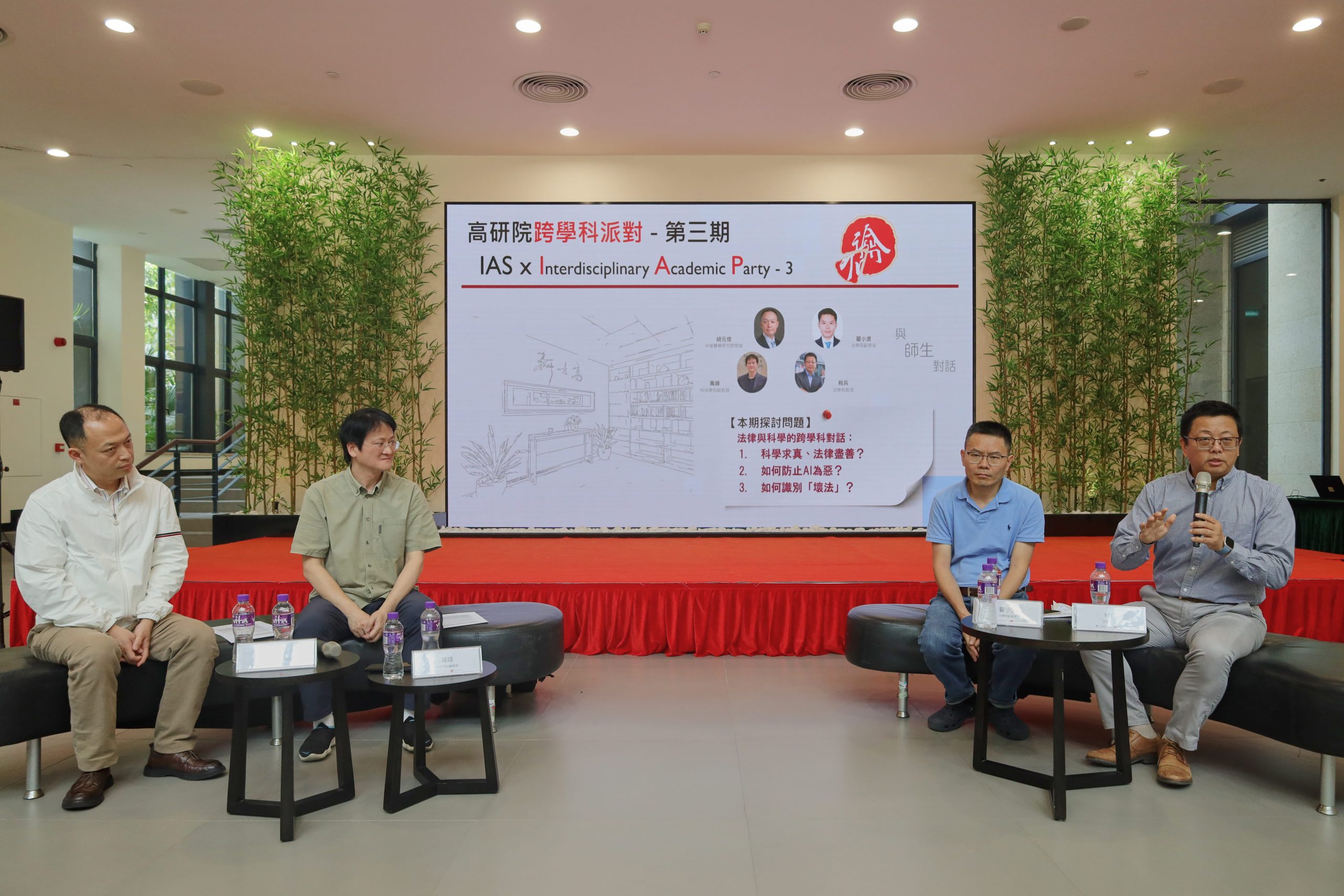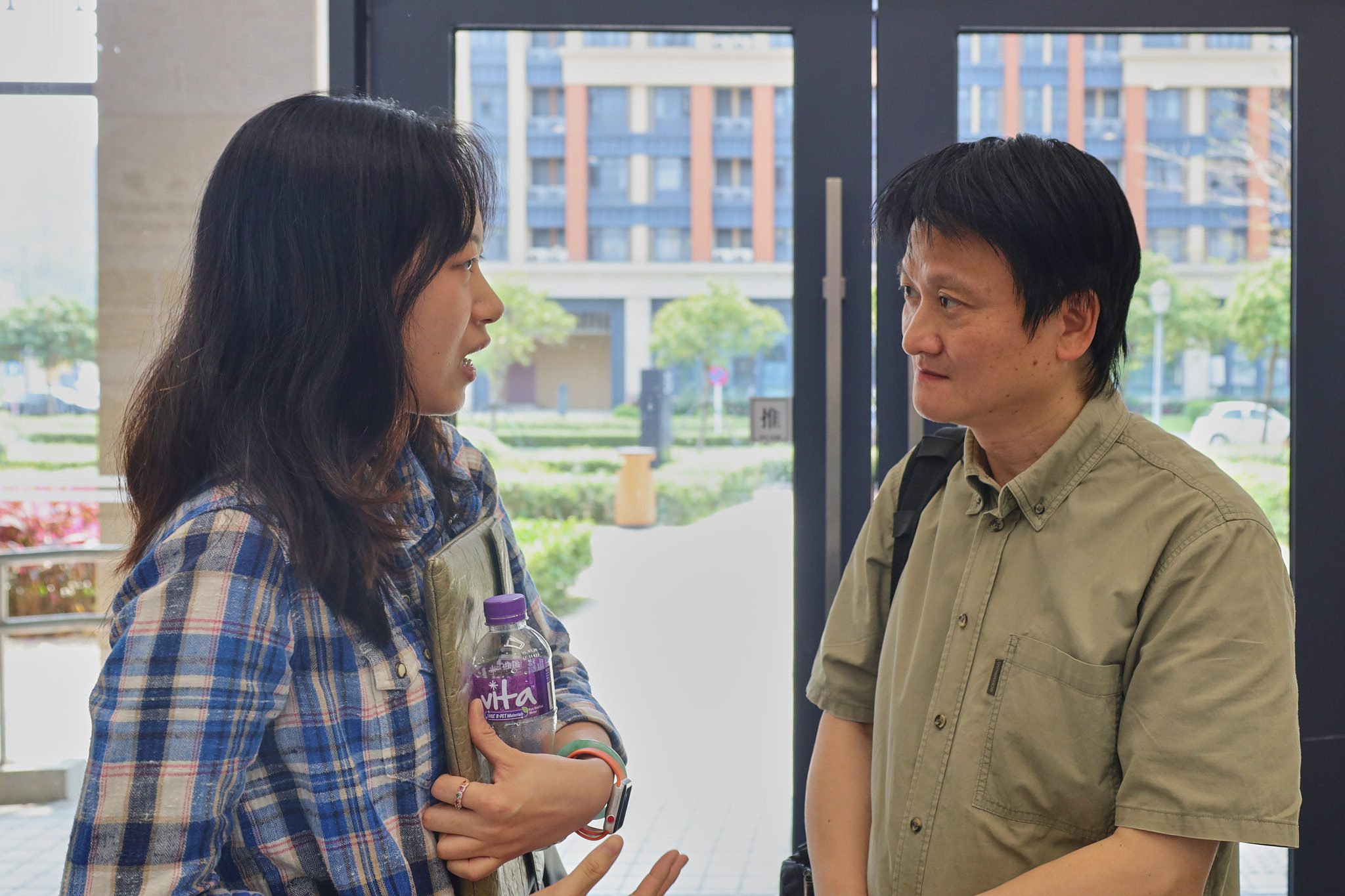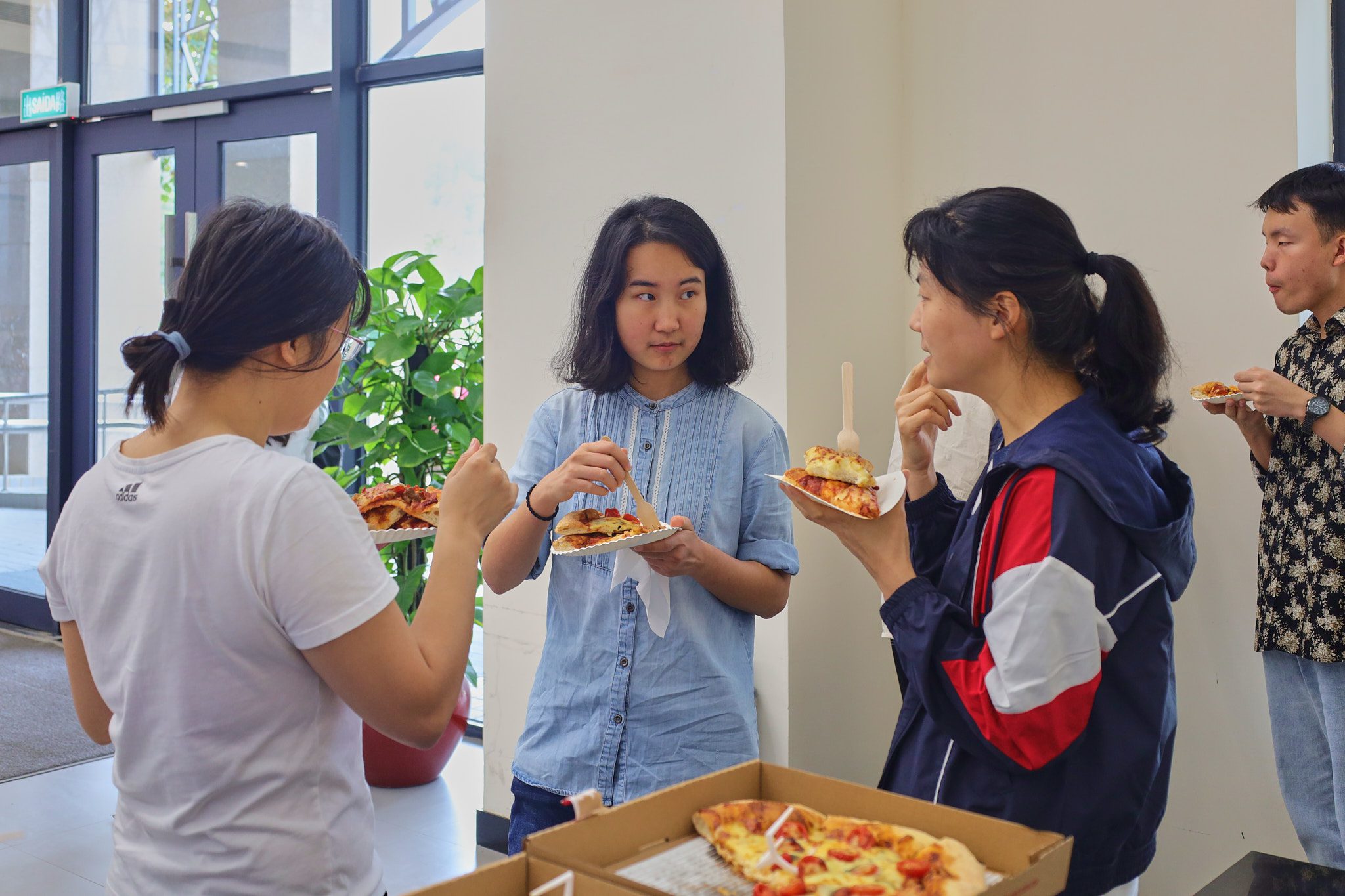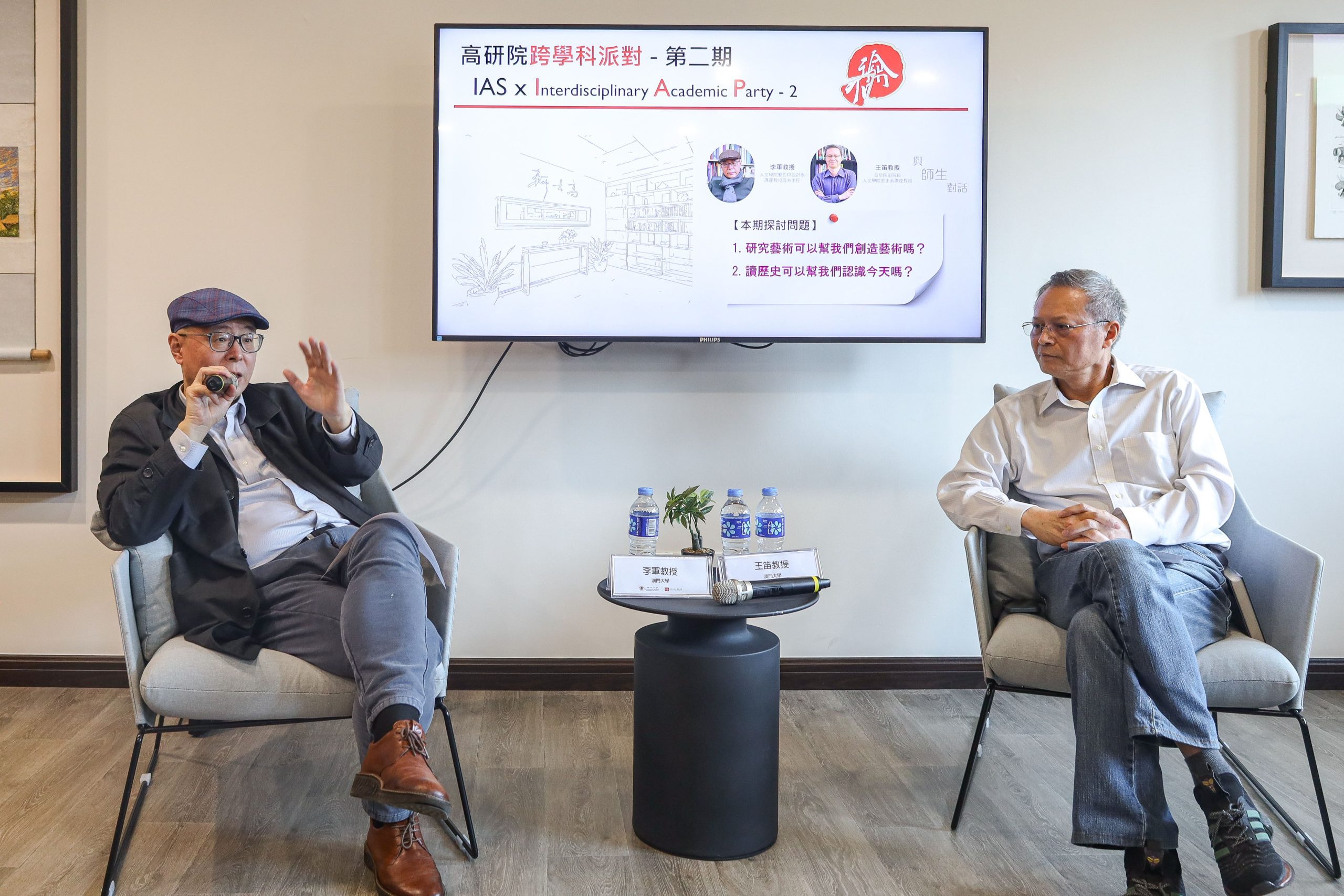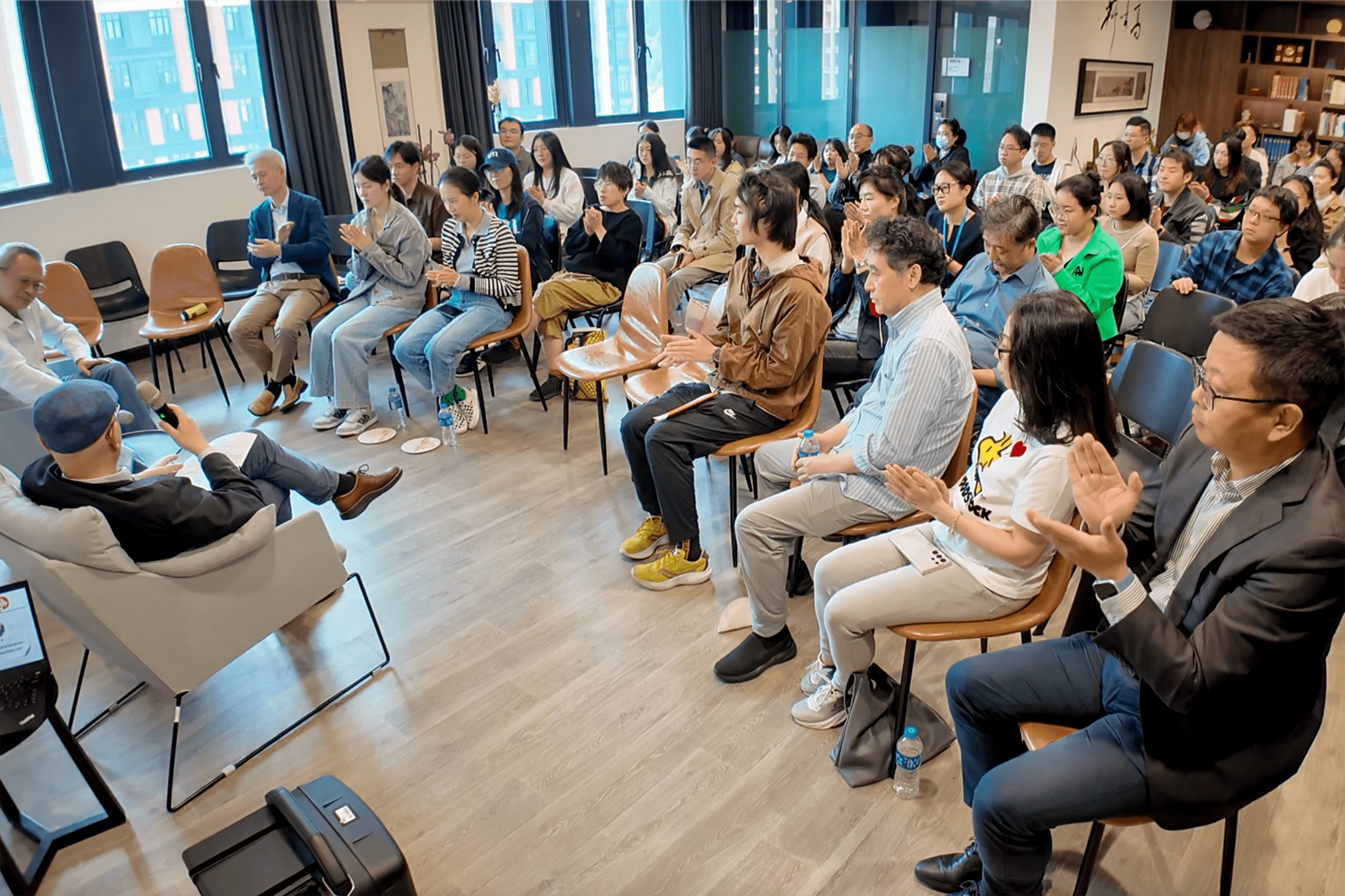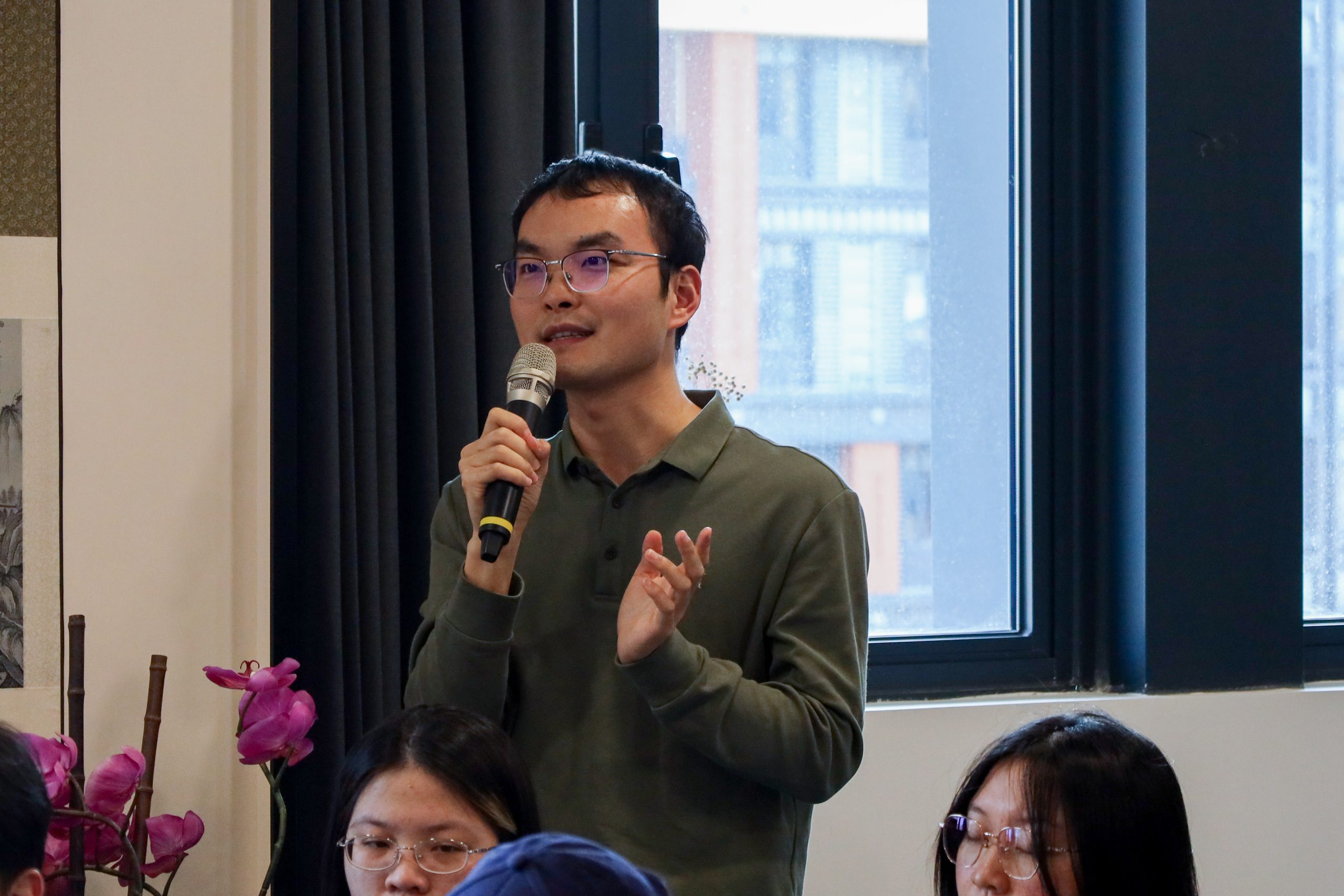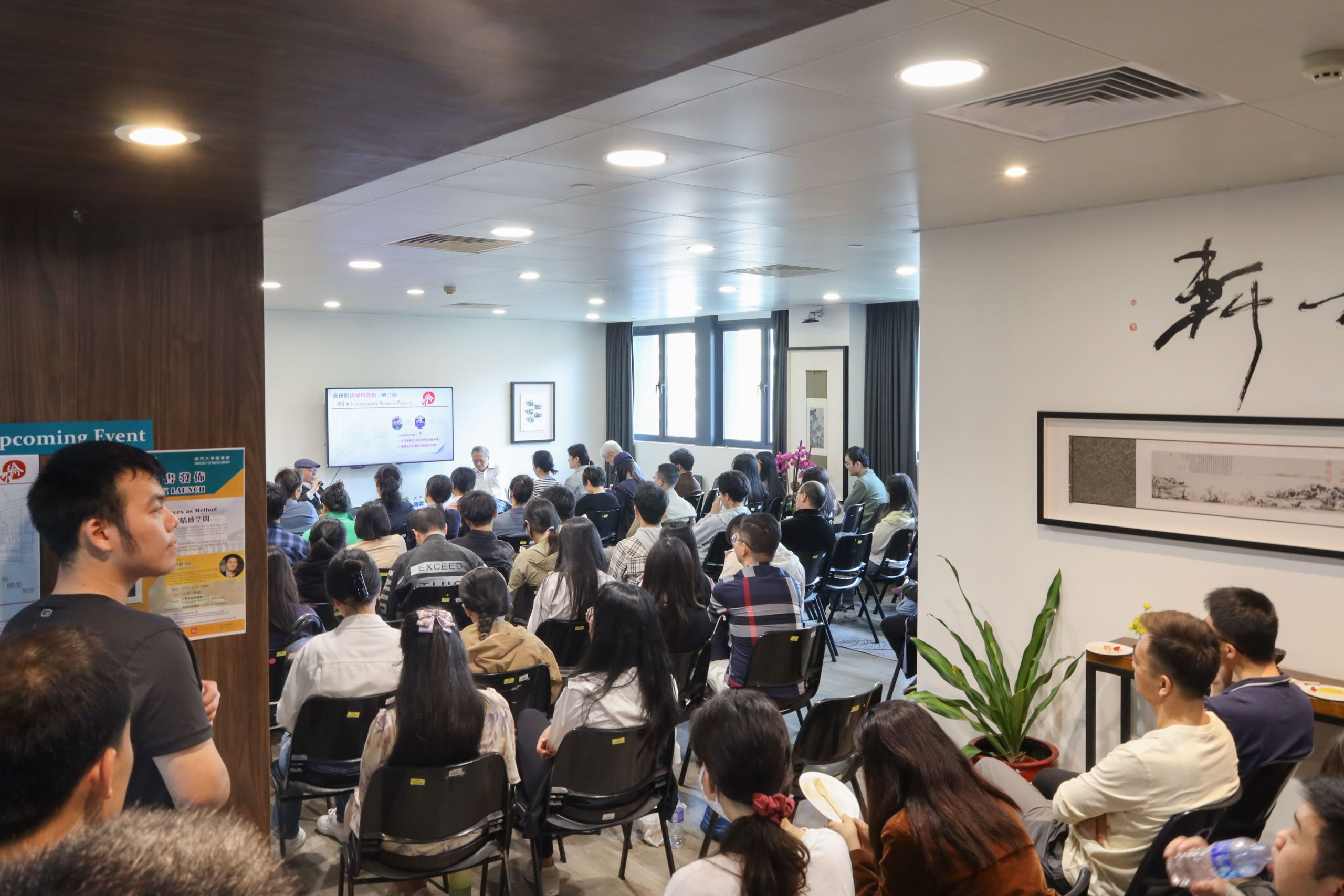【IAS】The IAS x Interdisciplinary Academic Party – 3 was successfully conducted
jillianun2024-05-12T00:00:14+08:00


高研院跨學科派對第三期於2024年4月10日在崇文樓成功舉辦。此次派對探討主題為“法律與科學的跨學科對話”,由法學院教授——稅兵教授擔任此主持人及主講嘉賓,法學院副教授——翟小波教授、科技學院副教授——萬峰教授以及中華醫藥研究院教授——胡元佳教授亦作為主講嘉賓參與本次派對。
派對伊始,稅兵教授拋磚引玉,就AI科技如何使中醫診療明白化提出疑問。胡元佳教授表示,中醫藥的基本思想是取向以類,講究整體觀,AI技術為中醫藥的解釋性提供了空間,但距離明白地治好病還需要一段很長的時間。同時,教授們就腦機結合的前景和對生活的影響、如何從功利主義角度設計自動駕駛車輛的演算法等話題進行了探討。萬峰教授表示,腦機結合將會在教育、醫療、娛樂、軍事等領域有所應用,借助技術更好地認識大腦,探索大腦的運作模式,從而造福未來的生活。翟小波教授對功利主義的概念作出解釋,並指出再完美的技術也有遇到碰撞難題,從功利主義的角度出發,演算法的設計必須要計算並做出行動,並且必須是利他型。同時,自動駕駛演算法設計需要政府統一立法協調。
隨後,教授們根據網上收集的問題,就法律與道德、科學、民意等話題展開討論。翟小波教授認為,法學是科學的一個分支,從本質上來說,都是求真,只是判別條件不一樣。法律總體上要服務于宏觀的道德工程,追求痛苦最小化快樂最大化,但在具體的法規範中,法律和道德沒有任何關係。另外他強調,司法裁判不應受民意影響。稅兵教授則發表了不同看法,他認為法學不是科學,法學沒有唯一正確解。教授們還就有沒有可能給AI技術加上安全閥這一問題展開探討。萬峰教授表示,防控技術風險應當從最初就要開始,這樣才使得技術更好地為我們服務。胡元佳教授還對中醫藥理論和AI技術發表了看法,他認為科學是不斷試錯、證偽,這個機制和中醫藥很像。中醫藥和科學都是不斷變化的,能治好病的醫學和藥學就是好的。
現場提問環節,有同學表示當下有些理論表示人類無法造出強人工智慧,萬峰教授指出從科技發展的趨勢來說,我們可以無限接近最終結果就是好的。教授們和同學們還就法律與道德、中醫藥與科學、跨學科研究等話題進行了交流。稅兵教授表示,法律需要保證生活的底線。法律探討的行為是過去的行為,不能是未來的行為。胡元佳教授認為,中醫、中藥是兩個領域。中醫更保守,而中藥靠近科學。當下的研究看的是中藥的作用機制、物質基礎和科學的聯繫更密切。而關於跨學科的問題,教授們紛紛指出,研究的本身是要創新,在資訊大爆炸時代,擁有跨學科條件,更容易產生創新。研究者需要做的是找到自己知識的盲點,找到學科間的交叉點,調動資源,解決問題。
在最後的總結環節,教授們發表了各自的看法。胡元佳教授強調了不論是多學科還是跨學科,最終目的是交叉學科,需要找到那個結合點。萬峰教授表示,我們要去瞭解、使用、思考研究人工智慧,雖然有風險,但人類有智慧,通過多方合作,使得人工智慧好好發展,有更好的未來。翟小波教授提出,問題就是給我們帶來痛苦,阻止我們追求快樂的現象。所有的問題都有一個正確答案。稅兵教授認為,我們更應擔心的是現今的AI帶來的諸如人的能力退化、體驗感的消失、社會關係的退化等系列問題,這才是更迫切的問題。
高研院舉辦的跨學科交流派對旨在加強校內師生的跨學科研究活動,加強學生與學者之間的聯繫,激發創新思維和學術探索,本次活動吸引了來自不同學科背景和領域的師生參與,現場氛圍濃厚。
The third IAS x Interdisciplinary Academic Party organized by IAS was successfully held on 10 April, 2024, at the Cultural Building. The theme of the party was “Interdisciplinary Dialogue between Law and Science”, which was hosted by Prof. Shui Bing from FLL. Prof. Zhai Xiaobo, Associate Professor of FLL, Prof. Wan Feng, Associate Professor of FST, and Prof. Hu Yuanjia, Professor of the Institute of Chinese Medical Sciences also participated in the party as speakers.
At the start of the party, Prof. Shui posed a question about how AI technology can improve the comprehensibility of traditional Chinese medical treatment. Prof. Hu explained that traditional Chinese medical treatment is based on a holistic approach and AI technology allows for the interpretation of it. However, it will take time before it can be practiced in an understandable way. The professors also discussed topics such as the prospects of brain-computer combinations and their impact on life, as well as designing algorithms for self-driving vehicles from a utilitarian perspective. According to Prof. Wan, this technology can benefit various fields such as education, medical care, entertainment, and military by providing a better understanding of the brain and its mode of operation. Prof. Wan and Prof. Zhai discussed the applications and limitations of brain-computer integration. Prof. Zhai explained the concept of utilitarianism and highlighted its limitations. From a utilitarian perspective, algorithms should be designed to calculate and perform actions in an altruistic manner. Additionally, the design of automatic driving algorithms should be regulated by the government through unified legislation.
The professors discussed various topics related to law, including its relationship with morality, science, and public opinion. Prof. Zhai emphasized that law is a branch of science and its purpose is to seek the truth, with the only difference being the conditions under which judgments are made. In general, the purpose of law is to serve the macro-moral project of minimizing pain and maximizing pleasure. However, in specific legal norms, there is no relationship between law and morality. Additionally, it was emphasized that judicial decisions should not be influenced by public opinion. Prof. Shui expressed a contrasting view, arguing that law is not a science and that there is no single correct solution. The professors also discussed the possibility of implementing a safety valve for AI technology. Prof. Wan and Prof. Hu discussed the risks and benefits of AI technology. According to Prof. Wan, it is important to address technological risks from the very beginning to ensure that technology serves us better. Prof. Hu commented on the similarities between science and Chinese medical sciences.
During the Q&A session, some students suggested that there are theories suggesting that human beings cannot create strong or super AI. However, Prof. Wan pointed out that based on the trend of technological development, we can get infinitely close to achieving this goal. The group also discussed topics such as law and morality, Chinese medical sciences, and interdisciplinary research. According to Prof. Shui, the law should establish a minimum standard of life. Legal evaluations should be based on past behavior, not future behavior. Prof. Hu distinguished between two fields of Traditional Chinese Medicine and Chinese Herbal Medicine. Regarding the issue of interdisciplinarity, professors have noted that in the current era, interdisciplinary conditions facilitate innovation. Researchers must identify gaps in their own knowledge, locate intersections between disciplines, mobilize resources, and solve problems.
At the final wrap-up session, the professors shared their views on the topic. Prof. Hu Yuanjia emphasized the importance of cross-disciplines. Prof. Wan Feng suggested that we should understand, utilize, and contemplate the research on AI, despite the risks involved. He also expressed his belief that through multi-party cooperation, humans can use their wisdom to ensure the proper development of AI and secure a better future. Prof. Zhai Xiaobo suggested that a problem is a phenomenon that causes pain and prevents us from pursuing happiness. All problems have a correct answer. According to Prof. Shui Bing, we should be more concerned about the series of problems brought by today’s AI, such as the degradation of human ability, the disappearance of the sense of experience, and the degradation of social relationships. These are more urgent problems.
The IAS x Interdisciplinary Academic Party aims to strengthen research activities among scholars and students, enhance connections between them, and stimulate innovative thinking and academic exploration. The event attracted students from various disciplines and fields, creating a vibrant atmosphere.











